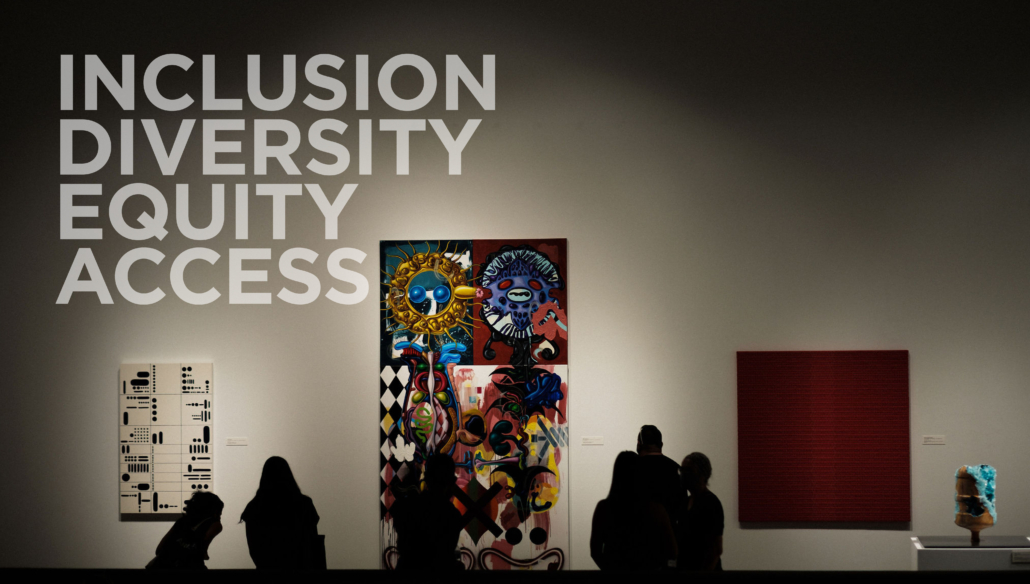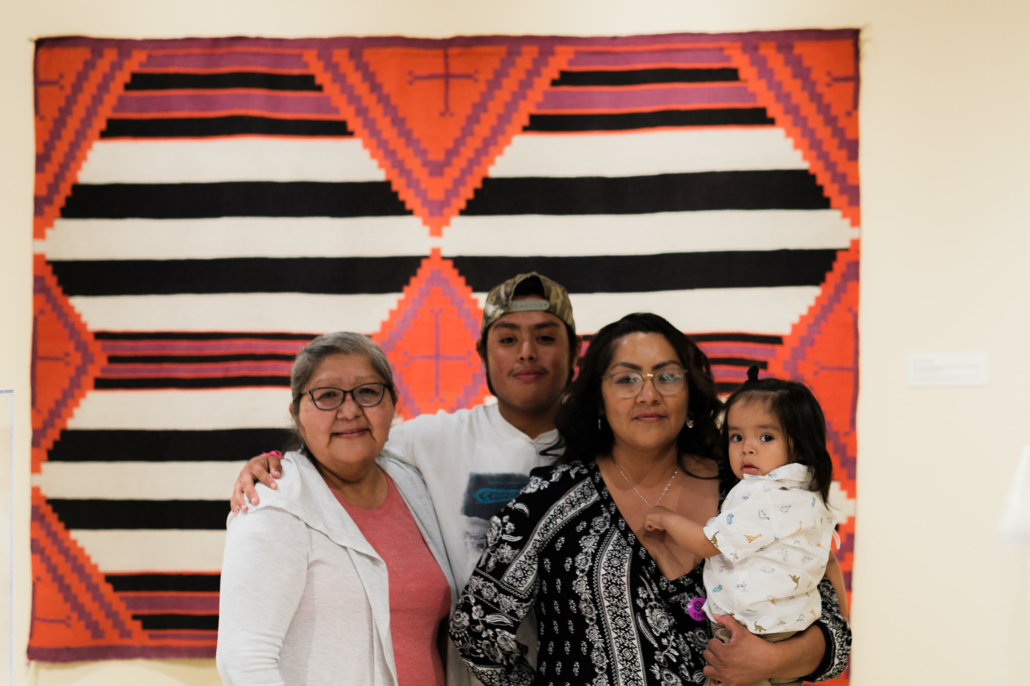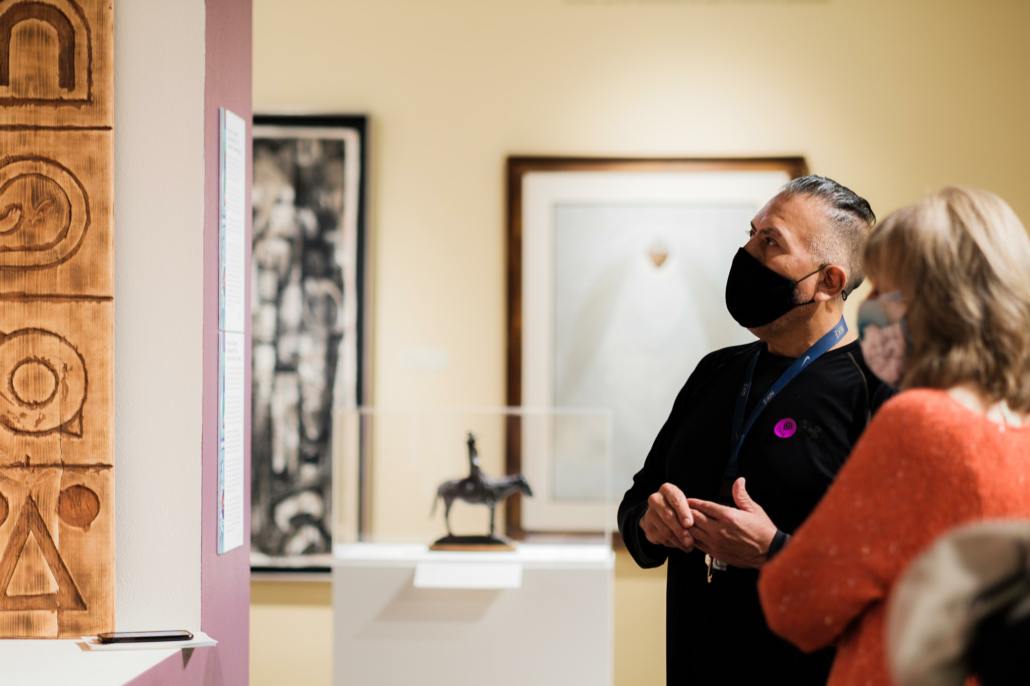Checking in: TMA’s IDEA Plan, Eight Months In
By Dr. Marianna Pegno, Curator of Community Engagement

As an institution committed to Inclusion, Diversity, Equity and Access (IDEA), we understand that our work and path towards IDEA is ongoing, includes listening to many voices, and activates every department, board, support organization, advisory group, committee and volunteer.
In our first year of TMA’s IDEA implementation plan we focus on inclusion and ensuring that our museum is a welcoming space for visitors and staff of all backgrounds, identities, abilities, perspectives and beliefs. Guided by our principles of relevancy, community, respect and multivocality, the projects highlighted here are a small representation of actions currently underway by TMA.
Stay tuned for future updates on the IDEA Plan and a special feature in TMA’s Annual Report on how TMA works towards a more inclusive, diverse, equitable and accessible institution.
Jeremy Mikolajczak
Jon and Linda Ender Director and CEO
Since the announcement of our IDEA Plan in August 2020 we’ve been busy working with consultants and community members as well as thinking about cross departmental implementation.
IDEA is NOT a program but rather an institution wide framework guiding all aspects of TMA including how we approach exhibitions, programs, collections and day to day operations. Here’s how things are going as we begin to align with this framework.
Lessons Learned
In December 2020 TMA and Bank of America hosted a virtual panel discussion to explore the importance of IDEA, moderated by Dr. Roxana Samaniego and featuring panelists Génesis Cubillas, Ashley La Russa, Elizabeth McClean and Liz Pocock. TMA staff took away best practices and strategies from the panelists to explore how the museum can work toward equity and inclusion, fostering sustainable and systemic change.
Takeaways include:
- Break down barriers – don’t be afraid to shatter what was happening yesterday and move into new spaces
- Develop culturally relevant resources
- Make authentic and not transactional connections to communities
- Consider the structures we are working within, including what policies might need to change to become more equitable and inclusive
- Consider whose and what stories are being told
- Stand up for your values
- Be open to community input and dialogue
- Pay people for their expertise and time
Inclusion, Diversity, Equity and Access: Building Responsive and Sustainable Organizations. Panel recorded December 10, 2020.
Shifting from Talking to Doing
With the support of a recent grant from the Lovell Foundation, TMA is developing metrics and action items and holistically integrating IDEA across departments and functions. This includes working with consultants Trayce Peterson and Adela Licona for sessions with stakeholders to identify, create and co-develop actionable items and timelines that will advance TMA’s IDEA principles (relevancy, community, respect and multivocality) with support organizations and departments
In addition we are:
- Creating metrics/rubric for tracking progress, success and accountability
- Planning IDEA trainings and capacity building at all levels of the organization
- Creating an internal resource and terminology guide to ensure all stakeholders have access to the same information and shared language
Over the last few months we’ve also worked hard to introduce the IDEA plan to staff and volunteers. This has included developing plans with TMA’s support organizations and TMALearn! docents for IDEA implementation, including the development of an IDEA liaison to support accountability within the Contemporary Art Society and Docent Council.

Colleen Lucero (Hopi) is one of six Indigenous community curators who worked with TMA staff to develop the reinstalled Indigenous Arts Gallery. Lucero (third from left) brought her family to see the exhibition on opening day. Photo by Julius Schlosburg.
IDEA in Action: Indigenous Arts
In March 2021 TMA reinstalled the Indigenous Arts Gallery, which puts into action the four guiding principles of IDEA.
RELEVANCY: The project focuses on communities Indigenous to Southern Arizona and by extension communities that have deep connections to the region through trade, migration or pilgrimage to sacred sites.
COMMUNITY: Employing community-based curation, TMA staff work with community curators to develop themes, a list of artworks to include and interpretative strategies for those artworks.
RESPECT: Through co-stewardship, participants build a shared understanding of artworks in TMA’s collection.
MULTIVOCALITY: The result acknowledges multiple perspectives and ways of knowing. Interpretation is authored by multiple community members and reflects the diverse Indigenous communities throughout Arizona.

Artist and community curator Dr. Reuben Naranjo (Tohono O’odham) discusses his work with a museum member in the new Indigenous Arts Gallery. Photo by Julius Schlosburg.
IDEA in Action: Docent Training
TMA is taking a new approach to training docents. The Education and Community Engagement departments, with consultant Patricia Lannes, have co-developed a new training module for docents to ground these IDEA principles within approaches to touring and gallery-based instruction. The new module foregrounds relationship building, culturally-responsive curriculum and inquiry-based learning.
The Indigenous Arts exhibition and workshops with Patricia Lannes were made possible in part by the Institute of Museum and Library Services (MG-50-19-0044-19).
What’s Next
- Develop a Collecting Plan that values community and local relevance in concert with collections and objects
- Offer training and continuing education to staff and volunteers
- Identify future funding opportunities to support implementation
- Author and compile a toolkit that includes:
- evaluation tools
- timelines for progress related to IDEA implementation
- approaches to staff accountability and onboarding new staff and volunteers
Hours
Museum Hours:
Wednesday – Sunday,
10 am – 5 pm
Information
Newsletter
"*" indicates required fields


